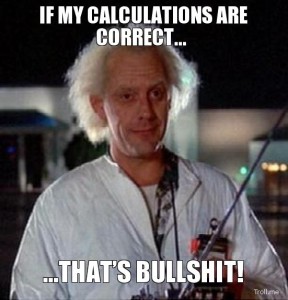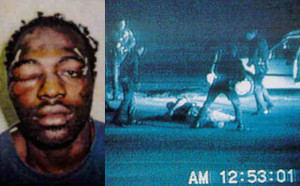
How to Hide Files in Office
Step 1) Create Mess;
Step 2) Tell people that you know where everything is.
Fort Lauderdale ASA Didn’t File 177 DUI Cases
On or about May 14, 2015, a long-term DUI case filing attorney for the Broward State Attorney’s Office was fired for “purposefully” not filing at least 177 DUI cases. The unfiled cases spanned a 14 year period of time from 1997 to 2011. When you average it out, it amounts to slightly more than 1 DUI per month over that 14 year period of time. To put this into perspective, there were 3,133 arrests in Broward County in April, 2015. Of those 3,133 arrests there were 139 arrests for DUI. So the failure to file DUI charges was not a frequent occurrence.
Was this purposeful? Who knows? What do they mean by the word “unfiled?” Did they have the evidence to secure a conviction? Did the State have the evidence necessary to ethically file charges? If the evidence wasn’t obtained, for whatever reason, there is no way to tell how many cases would have been filed. So this number may significantly over state the actual number of cases that would have been filed.
How Did This Happen?
These were not routine cases. It appears that all of the cases fit the same mold. The typical DUI scenario goes something like this:
- Traffic stop for random traffic infraction;
- Officer notices a distinct smell of alcohol, bloodshot glassy eyes and slurred speech;
- Officer asks defendant to step out of the vehicle and perform standardized field sobriety exercises;
- Suspect fails standardized field sobriety tests;
- Suspect is arrested for DUI and asked to submit to a breath test;
- Suspect submits to breath test with a result of a .08 or higher;
- Officer provides suspect with a citation which acts as a temporary driving permit for the next 10 days;
- Defendant posts $500 bond for a first DUI and goes home;
- Officer submits probable cause affidavit with the breath test ticket to the State Attorney;
- State Attorney files an “information” which is the document officially charging somebody with a crime.
This is how the “177 unfiled DUI cases” are different. At least this is how it appears to me based on the information I have.
- All of the cases involved a car accident;
- All of the suspects were injured and required medical treatment;
- None of the suspects were able to provide a breath sample because they were receiving medical treatment;
- None of the suspects were subjected to a forced blood draw. A forced blood draw can only be done in cases of death or serious bodily injury;
- It is reasonable to assume that nobody was serious injured or killed in any of these accidents because there was never a forced blood draw;
- None of the suspects were arrested.
A suspect can still be charged with a DUI even though the suspect was not arrested. When a suspect is not arrested, the officer submits a “presentment” to the State Attorney. The officer only submits the probable cause affidavit since there is no citation for the DUI. The filing attorney at the State Attorney’s office reviews the facts of the case and makes a determination of whether to move forward on the case.
Subpoena for Blood Test Results
Pursuant to Florida Statute 395.3025(4)(d), the State Attorney can request the court issue a subpoena for the suspect’s medical records that were generated as a result of being taken to the hospital. This includes any toxicology reports which were used for medical purposes. Prior to the court issuing a subpoena, a suspect must be given 15 days notice of the State’s intent to subpoena records from a 3rd party. The suspect can object to the production of the documents, including the toxicology reports, within the 15 days.
We Don’t Know What Happened
These “DUI” cases were presentments meaning that nobody had been arrested. I put the term DUI in quotation marks because we don’t know if the cases were solid DUI cases with blood alcohol levels over .08. We don’t know if the cases he didn’t file were garbage cases with .07’s and below. Personally, I believe that any case below a .10 is garbage and shouldn’t be filed. We don’t know if a subpoena was ever issued. If a subpoena wasn’t issued than we don’t know how many of these 177 cases should or shouldn’t have been filed because the toxicology reports are not available.
Assumptions
From what I have read so far, the State is claiming that 177 DUI cases were not filed. However, the news has not been very specific. In order for the number 177 to be correct, for these types of cases, you would need to assume that all 177 cases justified a subpoena being issued, that all 177 cases had subpoenas issued and that all 177 cases came back with .08 or higher BAC or a potentially impairing level of a narcotic scheduled under Chapter 893. After an Assistant State Attorney in the filing division has done all of that, the only thing left to do is sign a piece of paper. Literally, one signature. I simply find it hard to believe that a career prosecutor would go through all of the work of collecting the evidence, have a solid DUI case and simply not file it.
For more information, please contact us at:
The Law Offices of Michael A. Dye, PA, 1 East Broward Boulevard #700, Fort Lauderdale, FL 33301 (954)990-0525 or
The Law Offices of Michael A. Dye, PA, 2 S Biscayne Blvd, Miami, FL 33131 (305)459-3286
For more information on marketing your law firm in a highly competitive niche please visit Law Firm Marketing AND Legal Marketing. I am not being paid to link or promote these websites or products. It is a product/service that I truly believe in.





